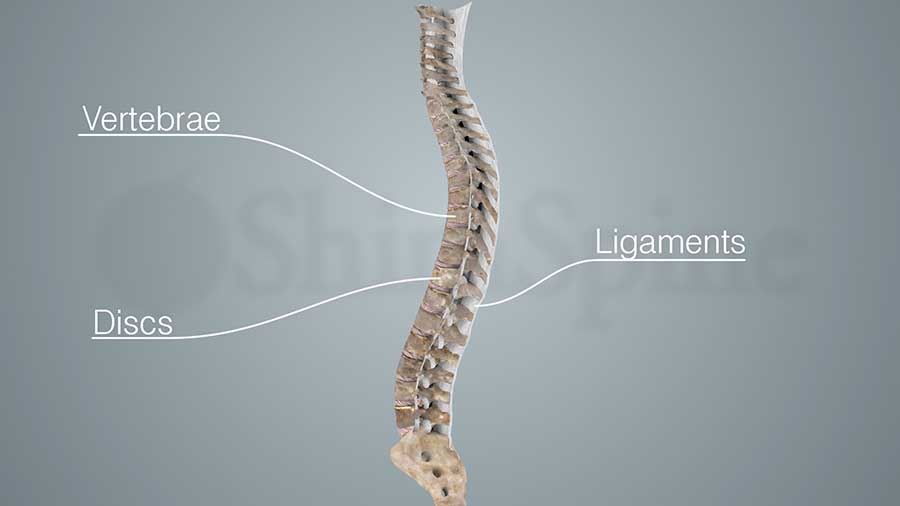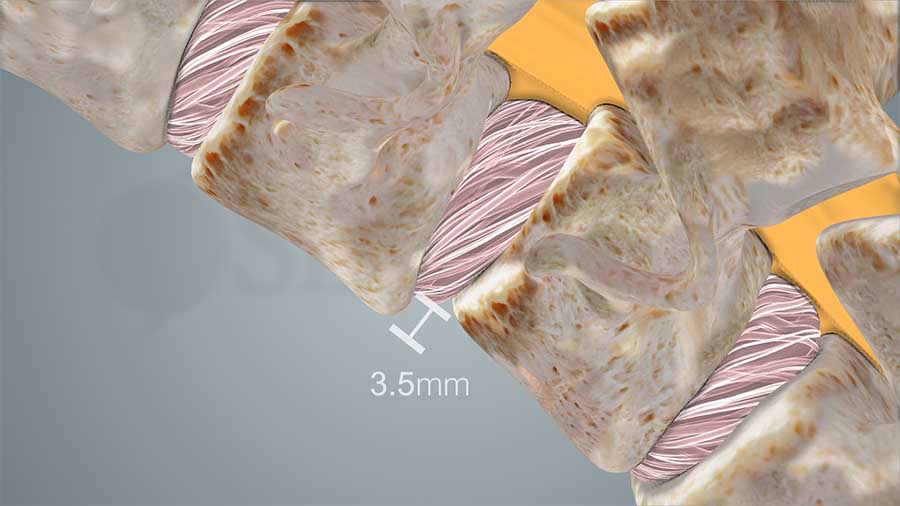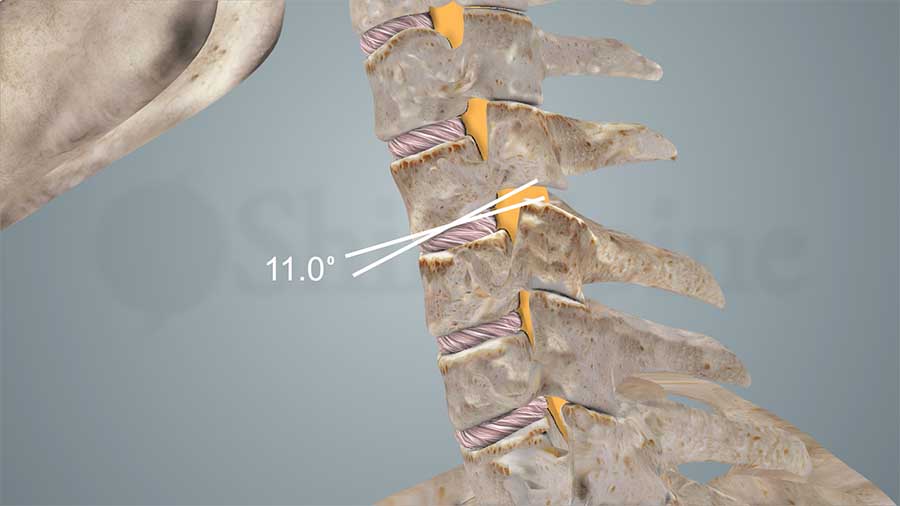Spinal Instability
What is spinal instability? The term is certainly a mouthful, and definitely can be confusing.
If we break it down, “spinal” means spine, and “instability” means it is not stable.
As we have described in other videos, the spine is composed of bones and a disc. Among the functions of the disc, is to provide a strong structure between the vertebrae that’s soft enough to move, but firm enough to prevent bones from dislocating on top of each other.

In prior videos, I also explained the concept of spondylolisthesis. Which is a slippage of one vertebrae on top of the other. To prevent that slippage, the bones must be secured to one another by ligamentous structures, including the discs in the front of the spine, and the various ligaments in the back of the spine that holds the bone to one another. Because these ligaments provide some movement, but it’s controlled, the bones cannot dislocate. The bones cannot move too far forward of one another to cause compression or pinching of what’s encased within the vertebrae. Which is either the spinal cord, and sometimes including the nerves. The control of how far the bones can twist, and turn, and bend is this concept of spinal stability.
With spinal instability, in other words, with excessive movements of bones on top of each other, there’s potential for damage, pain, and very bad things such as paralysis or permanent muscle weakness; because the nerve signals are compromised or no longer transmitted.
As doctors and scientists, we know that certain medical studies such as x-rays can give us information that demonstrates spinal stability or instability. In the neck, if one vertebral bone slips forward more than 3.5 millimeters on flexion and extension views, that is considered unstable.

In the neck, if the angle of one bone in relationship to the other is greater than 11 degrees, comparing the flexion and extension views, that is a sign of instability.

The same instability signs are also used for the lower back. In addition, with the development of more recent diagnostic tools, scientists and doctors are working on other concepts of defining instability; including rotational instability, and dynamic instability based on weight bearing.
In the end, the reason doctors and scientists try to better define this concept of instability is that certain people may have pain to the spine and weakness and numbness secondary to instability. If instability is identified, doctors may recommend treatments that can include possible surgery to prevent the instability from causing further complaints, and to prevent potential permanent injuries from this condition.
I hope I simplified this concept, instead of making it more confusing. Thank you for listening.
If you’d like more information about similar topics, please subscribe to our newsletter or to our YouTube channel.
Last modified: February 17, 2020










Very Usefull Information
thank you
Thanks
Dr. Shim for explaining clearly in simple words.
Thank you for reading.
Thanks sir. I read your valuable experience about spine. My son is also suffering from spinal instability. Please instruct me.
I’m sorry. We cannot diagnose or treat a patient without seeing them.
Thanks Dr.
Explained in a very simple & nice way.. looking for more videos ahead.
Thank you. Keep watching!
Excellent information , well explained .Thank u
Thank you for taking the time to write.
Excellent information , well explained
Thank you!
Sir, can you help me,…? my big brother is in very bad condition his spinal cod damage. By doctors Opinion …he was in india army he need help…please
I’m sorry Raju. We do not treat spinal cord injuries.
Glorious information in really very simple way.
Thank you for reading
Thanks you for your great service and suggest and.mor information thank you so much sir.
Thank you for reading.
hello dr.sir gdevng,
my father is ankylosinh spondylities patient sir,20 years nundi,pls treatment available ur suggesion
Please check out our blog https://www.shimspine.com/?s=Ankylosing+spondylitis for some ideas.
Thanks Doctor for this great advice
Thank you for reading.
Thank for the information about my condition. I am being proactive to prevent any more injuries to my spine due to my mild Spondylosis I can feet through out my spine. I am recieving Physical Therapy and trying to strengthen my core weaknesses of the abdominal muscles system and glutes muscles sections. Trying to balance the rebuilding of my muscles to not cause pain to my bulging degenerative disk. Along with my diastasis rectus from 3 full term pregnancies; one natural and two caesareans; one emergency and the other scheduled.
When I received manual Physical Therapy by my therapist pressing my up back and my lower back pain disappeared for 24 hours and then came back when I layed down on my stomach. My Worker’s Compensation injuries moved from the left to right and up my back. I am being treated for Chronic pain because I am allergic to ibuprofen and anything the has fen in the medication name.
I have complete six months of therapy to get an MRI done. In the mean time my back becomes unstable through out the spine.
Keep up the good work. One of the best ways to make your spine more stable is to strengthen your core.